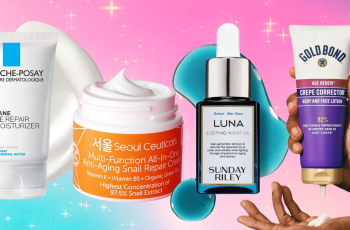




Witch Hazel Extract: The Ultimate Guide to This Natural Skincare Wonder


What is Witch Hazel?



Witch Hazel, also called Winterbloom, refers to a group of flowering plants native to North America, Japan, and China. It has been used traditionally for medicinal and cosmetic purposes for centuries.


Extracts from Witch Hazel are commonly used in skincare products like toners and essences, valued for their astringent and vasoconstrictor properties.



These help tighten pores, reduce redness, and soothe inflamed skin.


Besides its astringent effects, Witch Hazel also boasts antimicrobial, antioxidant, and general anti-inflammatory benefits, making it a versatile ingredient for many skin concerns.



Witch Hazel is especially beneficial for oily skin types due to its ability to reduce sebum (oil) production, which can help manage shine and acne.


How Does Witch Hazel Work?



Witch Hazel extract contains various plant compounds including polyphenols, tannins, flavonoids, gallic acid, and essential oils. These contribute to its powerful skin benefits.


Many of these compounds have strong antioxidant and anti-inflammatory activity. Antioxidants neutralize harmful free radicals that can damage skin cells and accelerate aging.



As a vasoconstrictor, Witch Hazel tightens blood vessels, which can reduce redness and swelling, especially in delicate areas like the eyelids where blood vessels are close to the surface.


Its astringent nature means it denatures proteins, pulling water and oil from the skin. This tightens pores and reduces excess oil on the face.



Witch Hazel also shows antibacterial properties, helping prevent and treat acne by reducing bacteria that cause inflammation and breakouts.


One key component, gallic acid, binds free radicals generated by sun exposure and environmental damage. This action helps protect skin DNA from mutations that could lead to cancer or premature aging.



Additionally, Witch Hazel passively absorbs sebum and restricts its production, shrinking pores and creating a less oily complexion. However, overuse can lead to dryness and irritation, so balance is important.


The Benefits of Witch Hazel



Witch Hazel offers a variety of skin benefits that make it popular in many formulations:


Antioxidant: It helps neutralize free radicals caused by pollution, sun exposure, and smoke, protecting skin from damage.



Anti-inflammatory: Reduces redness and swelling, calming irritated or sensitive skin.


Antibacterial: Helps prevent acne-causing bacteria growth, reducing breakouts and inflammation.



Astringent: Tightens pores and removes excess oil, which can improve skin texture and appearance.


Sebum-reducing: Controls oil production, especially helpful for oily and acne-prone skin.



Because of its vasoconstrictor properties, Witch Hazel is often included in eye creams to reduce puffiness and visible blood vessels around the eyes.


Is Witch Hazel Safe for Your Skin?



Witch Hazel extracts are generally considered safe for cosmetic use. The Cosmetic Ingredient Review panel (CIR) has found no long-term safety concerns at regulated concentrations.


Some low-level cytotoxicity and inhibition of collagen synthesis have been noted, but these are not significant enough to cause problems in normal use.



People without allergies to Witch Hazel are unlikely to experience contact dermatitis or other skin sensitivities.


However, Witch Hazel is not recommended for use on open wounds, acne scabs, or broken skin, as its drying effects and vasoconstriction may delay healing.



Who Should Use Witch Hazel?
Oily Skin: Ideal for those with oily or acne-prone skin due to its sebum control and antibacterial effects.
Combination Skin: Can be used cautiously to manage oilier areas while moisturizing drier zones.
Sensitive Skin: May help reduce redness and irritation if paired with moisturizers, but use sparingly to avoid dryness.
People in Polluted Environments: Antioxidant benefits help combat environmental skin damage.
Who Should Avoid Witch Hazel?
Dry Skin: Those with dry or flaky skin may find Witch Hazel too drying as it removes essential oils.
Skin with Wounds or Scabs: Avoid application on healing skin to prevent delayed recovery.
Allergic Individuals: People allergic to Witch Hazel or related compounds should avoid it.
Witch Hazel and Acne: What You Need to Know
Acne generally results from excess sebum, clogged pores, and bacteria buildup. Witch Hazel’s oil control and antibacterial effects make it a useful ingredient for managing acne-prone skin.
However, it does not speed up healing of pimples or scabs because its vasoconstriction limits blood flow, which is needed for healing.
For active acne treatment, Witch Hazel is best used alongside proven ingredients like salicylic acid, benzoyl peroxide, or retinoids, tailored to your skin type and acne severity.
Since Witch Hazel is an astringent, it can cause irritation or dryness in sensitive skin types. Patch testing is recommended before widespread use.
Witch Hazel for Inflammation and Sensitive Skin
Several tannins in Witch Hazel inhibit the skin’s inflammatory response to irritants. This helps reduce redness, swelling, and itching associated with conditions like eczema.
Witch Hazel’s anti-inflammatory properties calm inflamed skin but should not be used alone on dry or severely inflamed skin without moisturizing and barrier-repair ingredients.
Barrier repair ingredients like ceramides, cholesterol, and fatty acids are crucial when using Witch Hazel in sensitive or inflamed skin to maintain hydration and skin integrity.
Witch Hazel in Anti-Aging Skincare
Witch Hazel provides antioxidant protection that helps neutralize free radicals contributing to premature aging and sun damage.
However, it also inhibits collagen synthesis, which is essential for skin elasticity and firmness. This dual effect means Witch Hazel may be a mixed bag for anti-aging.
In anti-aging regimens, it is best combined with other ingredients that stimulate collagen production, such as vitamin C, retinoids, and peptides.
Witch Hazel does not promote elastin production, another key skin protein that maintains youthful skin texture.
Using Witch Hazel for Dry Skin: Proceed with Caution
Dry skin requires moisture retention to prevent transepidermal water loss (TEWL). Witch Hazel’s sebum-reducing and astringent effects may worsen dryness if used alone.
If you have dry skin but want Witch Hazel’s benefits, pair it with moisturizers like glycerin, hyaluronic acid, or fatty acids to maintain hydration and barrier function.
Avoid using Witch Hazel in high concentrations or daily if your skin tends to be dry, flaky, or irritated.
Witch Hazel for Oily Skin: A Natural Ally
Oily skin benefits the most from Witch Hazel’s ability to reduce excess sebum and minimize pore size.
By controlling oiliness, Witch Hazel reduces the environment where acne-causing bacteria thrive, helping to prevent clogged pores and breakouts.
Witch Hazel is non-comedogenic, meaning it won’t block pores or contribute to acne formation.
For those allergic to Witch Hazel, alternatives include tea tree oil, peppermint oil, or honey, which also have antibacterial properties.
Witch Hazel in Skincare Products
Witch Hazel is commonly found in:
Toners and facial cleansers for oily or acne-prone skin
Anti-inflammatory creams targeting redness and irritation
Eye creams to reduce puffiness and visible blood vessels
Aftershaves and soothing gels to calm skin post-shaving or sun exposure
Our Favorite Witch Hazel Products
Thayers Witch Hazel Toner: Alcohol-free, gentle, great for oily and combination skin.
Paula’s Choice Calm Redness Relief Toner: Combines Witch Hazel with soothing ingredients for sensitive skin.
Kiehl’s Calendula Herbal Extract Toner: Uses Witch Hazel and calendula for calming and oil control.
Final Thoughts: Should You Add Witch Hazel to Your Routine?
Witch Hazel is a powerful, multifunctional skincare ingredient with proven benefits for oily and acne-prone skin, redness, and inflammation.
However, it’s important to understand your skin type and concerns before incorporating it. For dry or sensitive skin, pair it with moisturizers or choose gentler formulations.
Avoid using Witch Hazel on broken skin or scabs to prevent irritation and delayed healing.
With the right knowledge, Witch Hazel can be a valuable part of your natural skincare arsenal.

